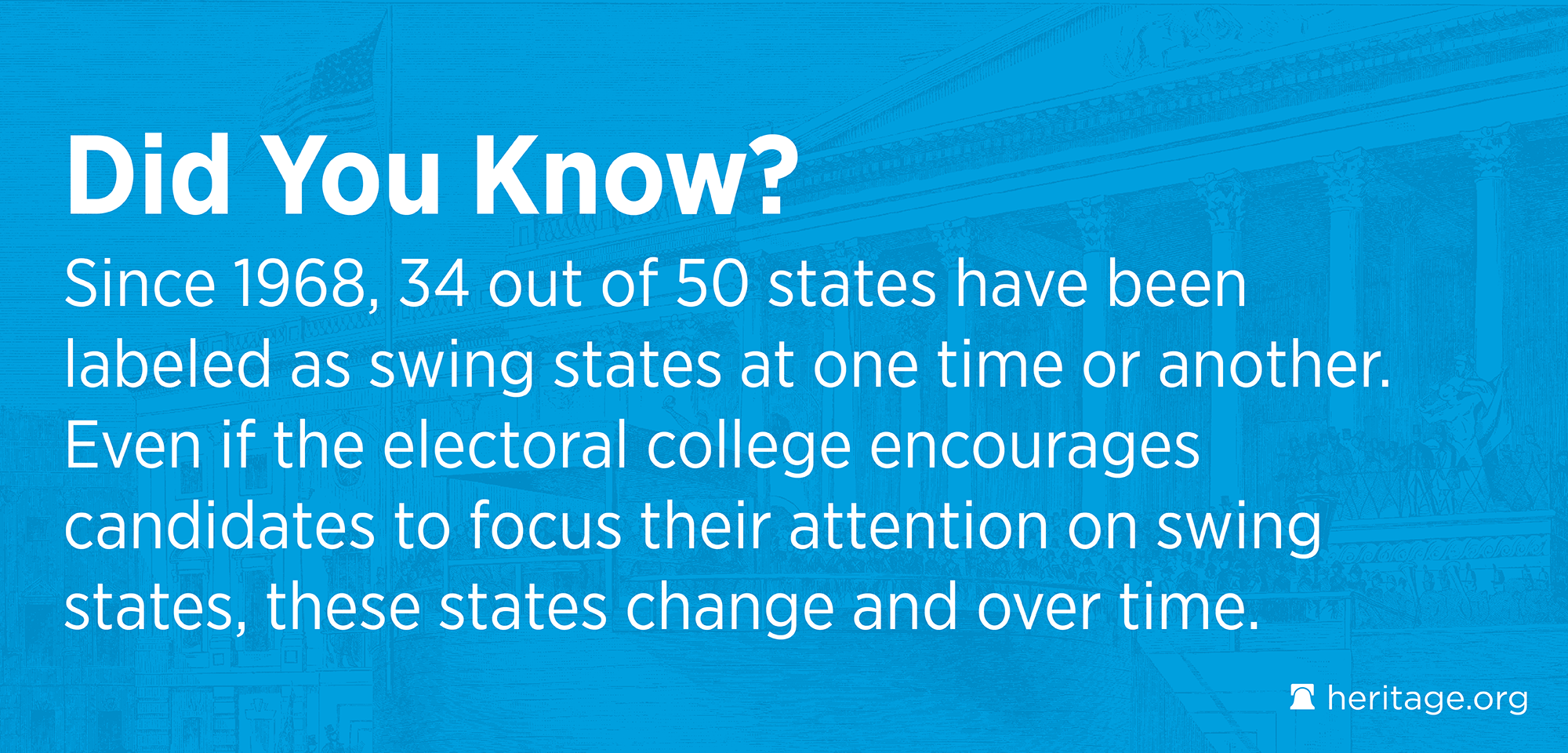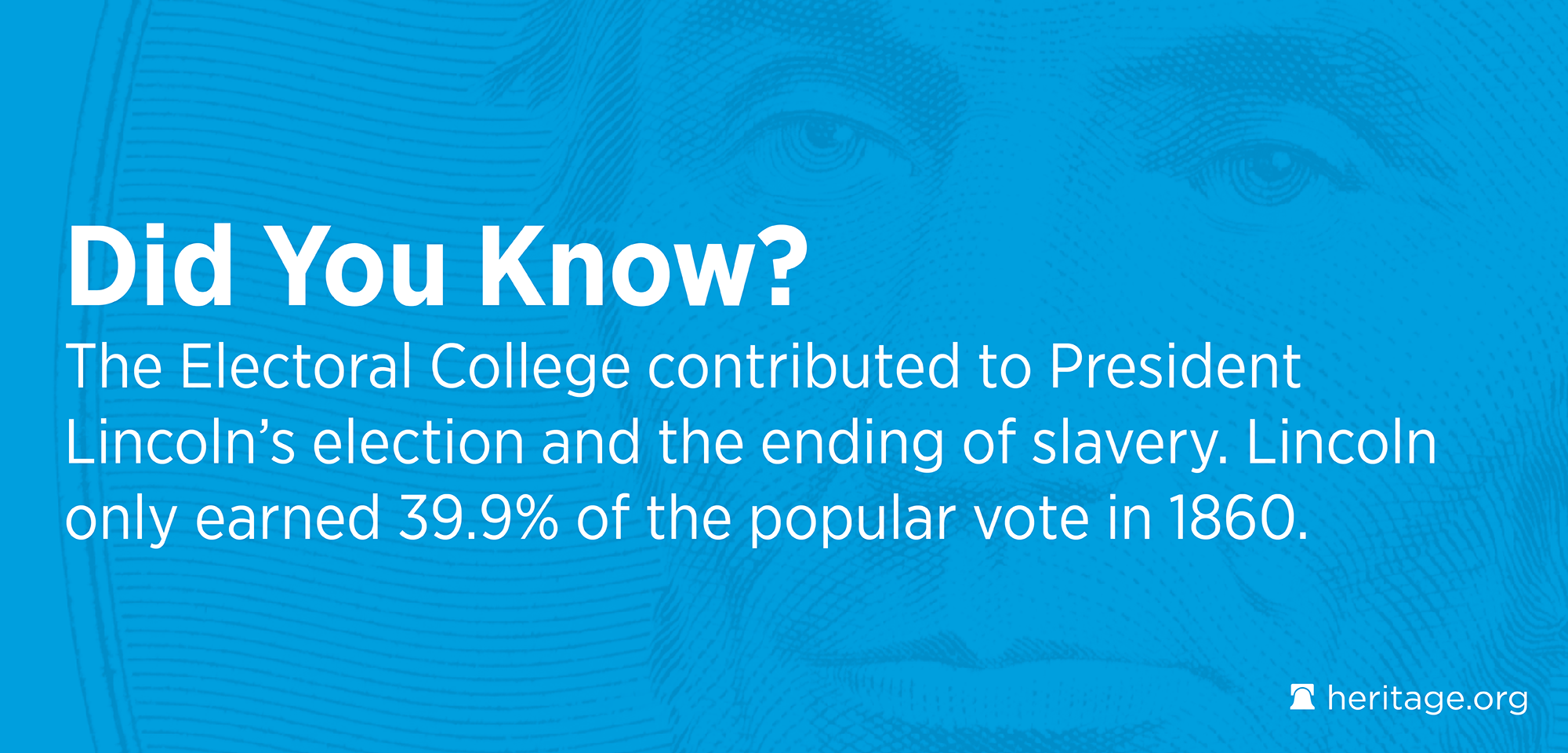FALSE CLAIM #1: SWING STATES HOLD ALL THE POWER
Opponents of the Electoral College argue that swing states garner all of the attention of candidates and that would change with a popular vote system. But swing states can change from election to election, and many states that are today considered reliably “blue” or “red” in the presidential race were recently unpredictable or have otherwise changed in their political makeup. Since 1968, 34 out of 50 states have been labeled as swing states at one time or another.6
However, with rare exceptions, established urban centers like Chicago, New York City, and Los Angeles will always have large populations that vote in a predictable fashion. By forcing candidates to travel outside of these urban centers and coalesce a majority of voters in their favor, the Electoral College assures that minority interests in a variety of geographic regions are protected. In stark contrast, a national popular vote system would help to protect only select urban interests. A majority of states would see their influence over the presidential election decrease.

FALSE CLAIM #2: THE ELECTORAL COLLEGE WAS DESIGNED TO PROTECT SLAVERY
Some have made the false historical claim that the Electoral College was enacted to protect slavery. Critics charge that because three-fifths of the slave population was included in the representation tabulation, it supposedly gave Southern states a political advantage with more Electoral College votes. Significantly, though, when the proposal for the Electoral College was voted on during the Constitutional Convention, Northern states with a lower slave population, unanimously voted for the proposal; yet, with the exception of Virginia, the Southern states, with a higher population of slaves, voted against it.7
Moreover, when the Constitution was drafted, slavery was practiced in every state, and the number of slaves did not give the Southern states a particular advantage. According to the 1790 Census, New York and Virginia were the largest slave-holding states north and south of the Mason–Dixon Line.8 If you subtracted the entire slave populations present in each state, Virginia still had a larger population of free people (over 136,000 more) than New York and still would have had more representatives in Congress and a larger electoral vote.
In fact, the Electoral College “contributed to ending slavery, since Abraham Lincoln, having only earned 39.9% of the popular vote in 1860, nevertheless won a crushing victory in the Electoral College—leading many Southern slaveholders to stampede to secession in 1860 and 1861. They could run the numbers as well as anyone, and realized that the Electoral College would only produce more anti-slavery Northern presidents.”9 The Electoral College requires candidates to appeal to a broad cross-section of the American people, which in turn moderates and combats extremism and passions harmful to the country as a whole.

ENDNOTES:
6. John York, “No, the Electoral College Isn’t ‘Electoral Affirmative Action’ For Rural States” Los Angeles Times, October 9, 2019, https://www.latimes.com/opinion/story/2019-10-09/electoral-college-affirmative-action-rural-states (accessed April 9, 2020).
7. Sean Wilentz, “The Electoral College Was Not a Pro-Slavery Ploy,” New York Times, April 4, 2019, https://www.nytimes.com/2019/04/04/opinion/the-electoral-college-slavery-myth.html (accessed April 30, 2020). See also John Yoo, “A Defense of the Electoral College in the Time of Trump,” Pepperdine Law Review Vol. 46, No. 4 (2019): pp. 123-147.
8. “Return of the Whole Number of Persons Within the Several Districts of the United States”, 1790 Census, https://www2.census.gov/library/publications/decennial/1790/number_of_persons/1790a-02.pdf? (accessed April 13, 2020).
9. Guelzo, “In Defense of the Electoral College,” p. 74.